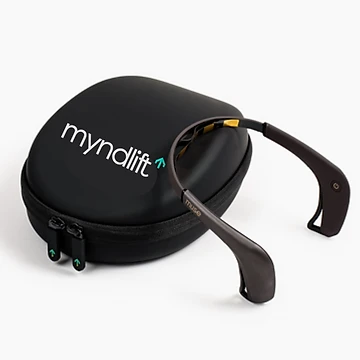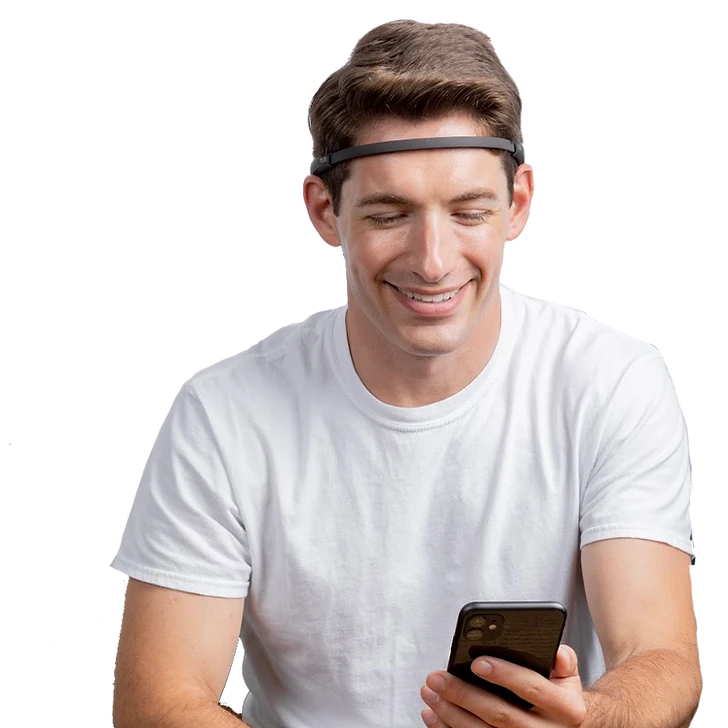STEP 1
Measure your focus levels
STEP 2
Train your brain with a tailor-made focus program
Get matched with a Neuro Coach who creates a custom brain training program, and start guided neurofeedback sessions that aim to sharpen your focus.

Brain-sensing and training
Your brain-sensing kit will be used to measure your brainwave activity and train it.

App to sharpen focus
App to sharpen focusThe Myndlift app trains your focus and relaxation, and offers learning resources to manage your productivity, brain health and more.

1:1 coaching
Your assigned Neuro Coach will personalize your home neurofeedback training program, help you stick to it and supervise your progress.
ADHD
ADHD and focus
People with ADHD often experience theta and beta brainwave dysregulation which manifests in:
Needing constant movement
Difficulty sustaining attention
Following detailed instructions
Organizing tasks and activities
Neurofeedback has been employed in clinical settings for over four decades to address brainwave dysregulation and relieve symptoms associated with ADHD.
Learn about the science behind neurofeedback →
Protocols

Theta-beta Ratio (TBR) Training
This protocol aims to improve the ability to focus and sustain attention; it promotes relaxation and can help you regulate your emotions.
Uptraining beta (16.5-20Hz) and downtraining theta (3-7Hz) brainwave activity

SMR (Sensorimotor Rhythm) Training
This protocol helps improve focus, attention, motoric precision, balance, and relaxation.
Uptraining SMR (12-15Hz), downtraining theta (3-7Hz) and hi-beta (18-25Hz) brainwaves
Exploring the Evidence:
Can Neurofeedback Improve Focus?
Based on meta-analyses and large multicenter randomized controlled trials (RCTs), neurofeedback is effective in alleviating inattentive and hyperactivity symptoms and is even associated with superior post-treatment academic performance (studies by Duric and colleagues, Meisel and colleagues).
Nonetheless, the best evidence for efficacy comes from double-blind placebo-controlled RCTs.











